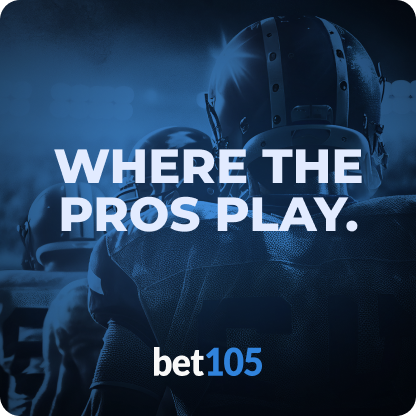Learn How to Be a Professional Gambler in Sports Betting
Diving into the world of sports betting as a profession is not for the faint-hearted. It requires more than

Diving into the world of sports betting as a profession is not for the faint-hearted. It requires more than just a love for sports or a lucky streak; it demands discipline, knowledge, and a strategic approach. The allure of turning a passion for sports into a profitable career is undeniable, but the path to becoming a professional gambler is paved with challenges and requires a deep understanding of the betting landscape.
Professional sports betting is a meticulous craft that involves analyzing statistics, understanding odds, and making calculated decisions based on thorough research. It’s about developing a keen eye for value bets, managing your bankroll effectively, and maintaining emotional control even in the face of losses. Success in this field is not about quick wins but about consistent, long-term profitability.
This guide is tailored for those aspiring to turn sports betting into a career, focusing on the essential skills and strategies needed to become a professional gambler. From mastering the basics of betting to advanced techniques for maximizing returns, we’ll cover everything you need to know to navigate the competitive world of sports betting. Whether you’re a seasoned bettor looking to refine your approach or a newcomer eager to learn the ropes, this comprehensive guide will provide you with the tools and insights to succeed in the high-stakes arena of professional sports betting.
Understanding the Professional Gambler Mindset
Becoming a professional in sports betting means transitioning from casual betting to a business-like approach where betting is your livelihood. This mindset involves discipline over emotion, where decisions are calculated based on data, odds, and strategy rather than chasing losses or betting on your favorite team. It requires a methodical approach, where every bet is viewed as an investment, and the focus is on long-term profitability rather than short-term excitement.
Committing to continuous learning is essential. This means staying updated on team news, player injuries, and market trends, as well as understanding the intricacies of different sports and betting markets. Professional gamblers invest time in analyzing past bets, learning from both wins and losses to refine their strategies. They also keep abreast of new betting techniques and tools that can give them an edge.
Bankroll management is another critical aspect of the professional gambler mindset. Setting strict limits on how much you bet relative to your total bankroll ensures that you can withstand losing streaks without depleting your funds. This involves calculating the optimal bet size for each wager, often using methods like the Kelly Criterion, to balance risk and reward effectively.
Moreover, maintaining emotional control is paramount. Professional gamblers must avoid the pitfalls of emotional betting, such as chasing losses or making impulsive decisions based on gut feelings. Instead, they rely on a disciplined, data-driven approach to make informed decisions. This level-headedness helps them stay focused and consistent, even during challenging periods.
In essence, the professional gambler mindset is about treating sports betting as a serious business, where success is built on a foundation of knowledge, discipline, and strategic planning. By adopting this mindset, aspiring professional gamblers can increase their chances of achieving long-term success in the competitive world of sports betting.
Essential Skills and Knowledge
To excel as a professional sports bettor, you’ll need to hone several skills that go beyond a basic understanding of sports and betting. Statistical analysis becomes paramount, as interpreting stats not just at face value but in context is crucial to understanding how they translate into betting odds. This involves delving into advanced metrics, trends, and historical data to make informed predictions. A deep understanding of probability and how odds are set by bookmakers is essential to spotting value bets. This knowledge allows you to identify when the odds offered by a bookmaker are favorable compared to the actual probability of an event occurring.
Developing or adapting betting strategies is another critical component. Whether it’s arbitrage, value betting, or focusing on specific sports or bet types where you have an edge, having a well-defined strategy can significantly enhance your chances of success. This might involve creating models to predict outcomes, using software to track and analyze bets, or employing techniques like hedging to manage risk.
Knowing the betting markets inside and out is also vital. This means identifying overvalued or undervalued bets and understanding the differences in how various sportsbooks set their lines. Each sportsbook may have its own approach to setting odds, influenced by factors such as their customer base, market position, and risk management strategies. By understanding these nuances, you can exploit discrepancies and find the best value bets.
Additionally, staying updated on industry trends, regulatory changes, and new betting technologies can give you a competitive edge. Continuous learning and adapting to the evolving landscape of sports betting are essential for long-term success. Networking with other professional bettors, participating in forums, and attending industry events can also provide valuable insights and opportunities to refine your skills.
In summary, excelling as a professional sports bettor requires a combination of statistical acumen, strategic thinking, market knowledge, and a commitment to continuous improvement. By mastering these essential skills and knowledge areas, you can navigate the complex world of sports betting with confidence and achieve sustained profitability.
Building Your Betting Strategy
Building an effective betting strategy is central to succeeding as a professional sports bettor. Specialization often plays a key role; focusing on one or a few sports allows you to develop deep insights into team dynamics, player statistics, and the nuances that can affect outcomes. This specialization can lead to identifying betting edges that generalists might overlook. Alongside this, line shopping becomes indispensable. Constantly comparing odds across multiple bookmakers ensures you’re always getting the best value for your bets, as even small differences in odds can significantly impact long-term profitability.
Diversifying your approach with different bet types, such as moneyline, spread, over/under, or parlays, can not only spread your risk but also capitalize on various betting opportunities within a single game or across different sports. Understanding when and how to utilize each type of bet is part of a comprehensive strategy. Moreover, the integration of technology into your strategy cannot be overstated. Utilizing betting software for data analysis, statistical models to predict outcomes, or AI tools to find patterns in vast amounts of data can give you a technological edge. This can range from simple spreadsheet use for tracking to more complex algorithms for betting predictions, enhancing your decision-making process with data-driven insights.
The Practicalities of Professional Betting
The practical aspects of professional sports betting are as crucial as the strategies themselves. First and foremost, understanding and adhering to the legal and ethical considerations of gambling is imperative. This means operating within the legal frameworks of your jurisdiction, respecting gambling laws, and maintaining ethical betting practices that include responsible gambling. Being well-informed about the legalities can prevent legal repercussions and ensure your betting career is sustainable.
Record-keeping is another cornerstone of professional betting. A meticulous log of every bet placed, including the stake, odds, outcome, and any insights gleaned from the result, is essential. This practice allows for a detailed analysis of your performance, helping to identify patterns, successful strategies, or areas where you need improvement. Over time, this data becomes invaluable for refining your betting approach, understanding your edge, and adapting to changes in sports or betting markets.
Networking within the betting community can yield significant benefits. Engaging with other bettors, whether through forums, social media, or personal connections, can provide a wealth of knowledge, from sharing insights on teams and players to discussing strategies or even collaborating on bets. This networking can also offer emotional support, which is crucial given the isolation one might feel in such a solitary profession.
Financial management extends beyond just managing your betting bankroll. It involves understanding the tax implications of your gambling income, which varies by country and can significantly affect your net profit. Creating a separate account dedicated to betting can help in tracking and managing funds specifically for this purpose. Additionally, considering how you handle withdrawals, reinvestments, and potentially diversifying your income sources to avoid reliance solely on betting profits are all part of a comprehensive financial strategy.
Finally, the practicalities include setting up a conducive environment for betting. This means having reliable access to information, whether it’s through subscriptions to sports analytics services, investing in technology for data analysis, or ensuring you have a stable internet connection for placing bets at the right moment. The setup should also promote discipline, perhaps through tools that help manage time spent on betting or enforce self-imposed limits on bet sizes or types.
All these elements together form the backbone of a professional betting operation, ensuring not just profitability but also sustainability and personal well-being in the long run.
Challenges and Risks
The path to becoming a professional sports bettor is not without its formidable challenges and inherent risks. One of the most significant hurdles is dealing with variance. Even with the most meticulously planned strategies, sports betting is subject to the whims of probability. This means that even the best bettors can encounter losing streaks that test their emotional and financial resilience. Understanding and accepting that short-term losses do not necessarily reflect the efficacy of one’s strategy is crucial, as is maintaining the discipline to stick to your approach despite these fluctuations.
Another significant risk comes from bookmaker restrictions. As you prove your acumen and profitability, bookmakers aim to limit your potential impact on their margins by imposing betting limits, reducing odds, or even closing accounts. This scenario requires adaptability, potentially managing multiple betting accounts, or shifting towards betting exchanges where less restriction might be encountered. However, this also introduces complexities like managing different platforms, understanding their unique rules, and maintaining profitability across them.
The betting landscape is also becoming increasingly saturated with informed bettors. As more individuals access sophisticated data, tools, and education on betting, the edges once found through basic analysis are diminishing. This saturation makes it tougher to find value bets, pushing professional bettors to delve deeper into less explored sports, markets, or to develop proprietary models and insights. Continuous learning, therefore, becomes not just a strategy but a necessity to stay ahead in this ever-competitive field.
Furthermore, the regulatory environment can pose risks. Changes in gambling laws, both domestically and internationally, can affect where and how you can bet, potentially impacting your strategy or even your ability to operate. There’s also the risk of becoming overly dependent on betting as a sole income source, which can lead to financial instability if not managed with a diversified approach to income or savings.
Lastly, the psychological toll of betting professionally should not be underestimated. The pressure to perform, manage funds wisely, and make correct decisions consistently can lead to stress, burnout, or even gambling addiction if not approached with a healthy mindset and strict personal boundaries. Balancing the thrill of betting with the discipline of a professional approach is perhaps the most nuanced challenge of all.
Conclusion
Becoming a professional sports gambler is as much about managing risk as it is about spotting opportunities. It’s a path that requires dedication, a love for analytics, and the discipline to treat betting as a business. The journey is fraught with challenges, but for those who can navigate it, the rewards can be substantial.
For those ready to take the leap into professional sports betting, Bet105 offers an ideal platform. With competitive odds, a wide range of betting markets, and tools designed for the analytical bettor, Bet105 can be your ally in this challenging but potentially rewarding career.
Ready to transform your betting hobby into a professional endeavor? Visit Bet105 today to explore how you can leverage their platform for your betting strategy.












